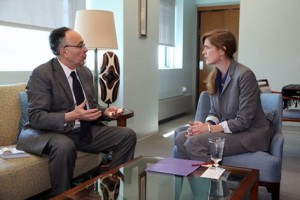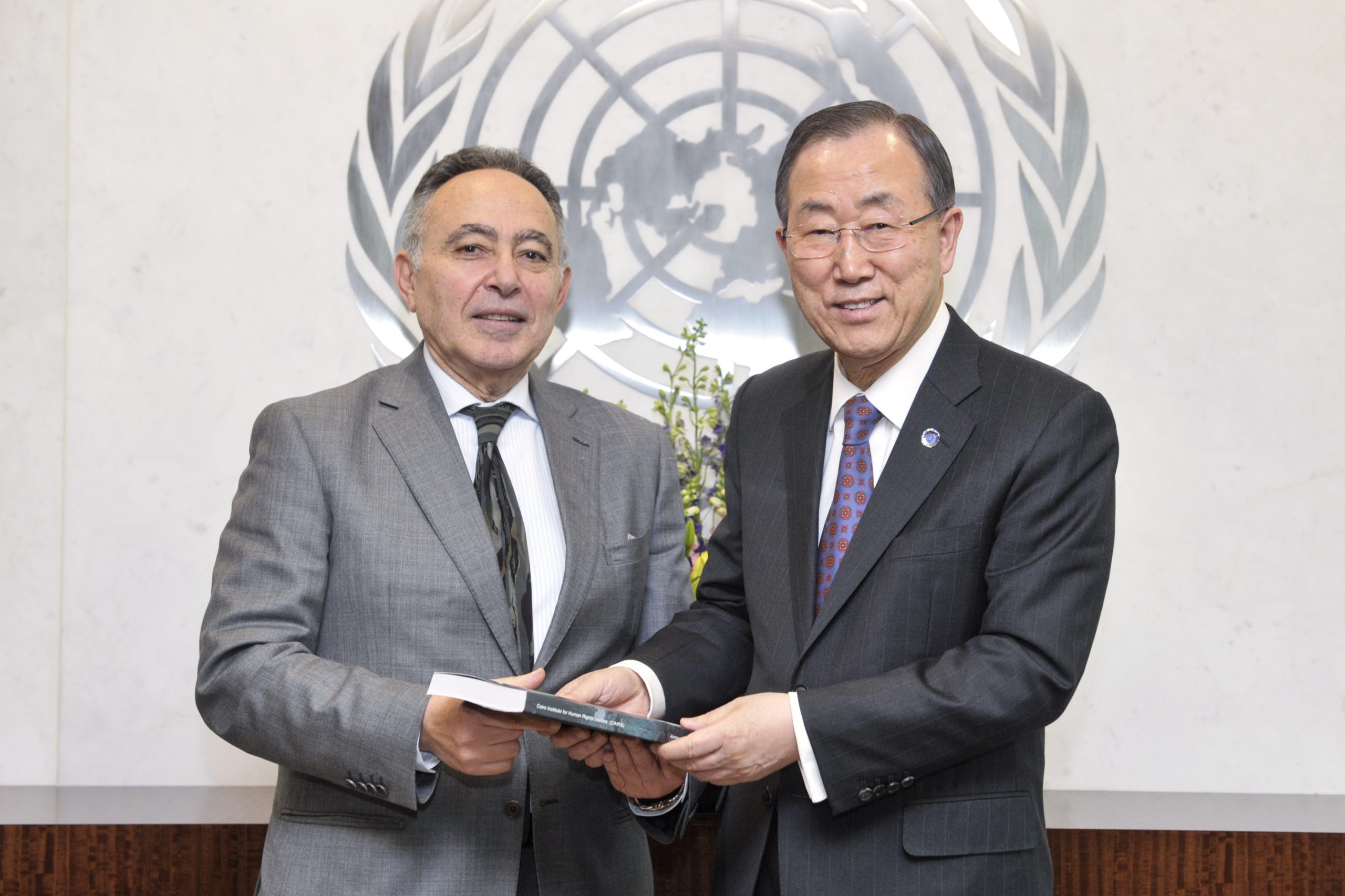Meeting reflects concern of international community at Egyptian government’s failure to respect human rights and combat terrorism
 UN Secretary-General Ban Ki-moon met with Bahey eldin Hassan, the director of the Cairo Institute for Human Rights Studies, on Wednesday evening in the secretary-general’s office in New York. The meeting discussed the ongoing deterioration of human rights in Egypt and the deployment of the judiciary for political and security ends, with the goal of retaliating against rights organizations. The pair also discussed the responsibility of the UN and its agencies toward these serious practices and conditions. The secretary-general expressed his deep concern at the ongoing pressure exerted by the Egyptian government on dozens of Egyptian rights organizations with the goal of shutting them down, which promises a further decline in human rights. The meeting was attended by several officials with the UN General-Secretariat and the Office of the High Commissioner for Human Rights.
UN Secretary-General Ban Ki-moon met with Bahey eldin Hassan, the director of the Cairo Institute for Human Rights Studies, on Wednesday evening in the secretary-general’s office in New York. The meeting discussed the ongoing deterioration of human rights in Egypt and the deployment of the judiciary for political and security ends, with the goal of retaliating against rights organizations. The pair also discussed the responsibility of the UN and its agencies toward these serious practices and conditions. The secretary-general expressed his deep concern at the ongoing pressure exerted by the Egyptian government on dozens of Egyptian rights organizations with the goal of shutting them down, which promises a further decline in human rights. The meeting was attended by several officials with the UN General-Secretariat and the Office of the High Commissioner for Human Rights.
Hassan also held two separate meetings on Tuesday with Tayé-Brook Zerihoun, the assistant UN secretary-general for political affairs, and Samantha Power, the US ambassador to the UN.
Hassan said that Ban Ki-moon meeting with him for the second time in three weeks and the third time in three years reflects the magnitude of the international community’s concern about the ongoing failure of the Egyptian government to respect its national and international commitments to respect the human rights of Egyptians, as well as the failure to combat terrorism from North Sinai to Cairo. Hassan suggested that the Islamic State was limited to a few positions on the border with Gaza and Israel, but has expanded greatly in the past two years. It is now launching attacks in broad daylight in the heart of Cairo and in public squares in Arish, at the edge of the Suez Canal. Two months ago, Ban Ki-moon announced the UN working plan to prevent violent terrorism, which is grounded in the conviction that it is impossible to fight violent extremism and terrorism in the world without addressing the root causes, first and foremost the violation of individual and collective human rights.
Hassan said that the meeting held by President Abd al-Fattah al-Sisi with intellectuals on Tuesday could indicate the beginning of an awareness of Egypt’s catastrophic domestic path and the dangers of isolation by the international community. While the meeting could be a symbolic step in the right direction, it must be accompanied by the immediate dropping of a series of false charges against Egyptian human rights organizations, pardons for persons convicted in the international rights organizations case in 2011, and the release of thousands of innocent people imprisoned simply for exercising their human and constitutional rights to express their opinion peacefully, orally and in writing, images, articles, books, literature, or in meetings with others who share this opinion. Hassan also urged President Sisi to hold a more inclusive, representative meeting to discuss the current disastrous situation and ways to save the country from it. This meeting should include intellectuals, artists, press and media workers, businesspeople, and members of professional syndicates, elected university student unions, and independent rights organizations, as well as security officials.
Share this Post

